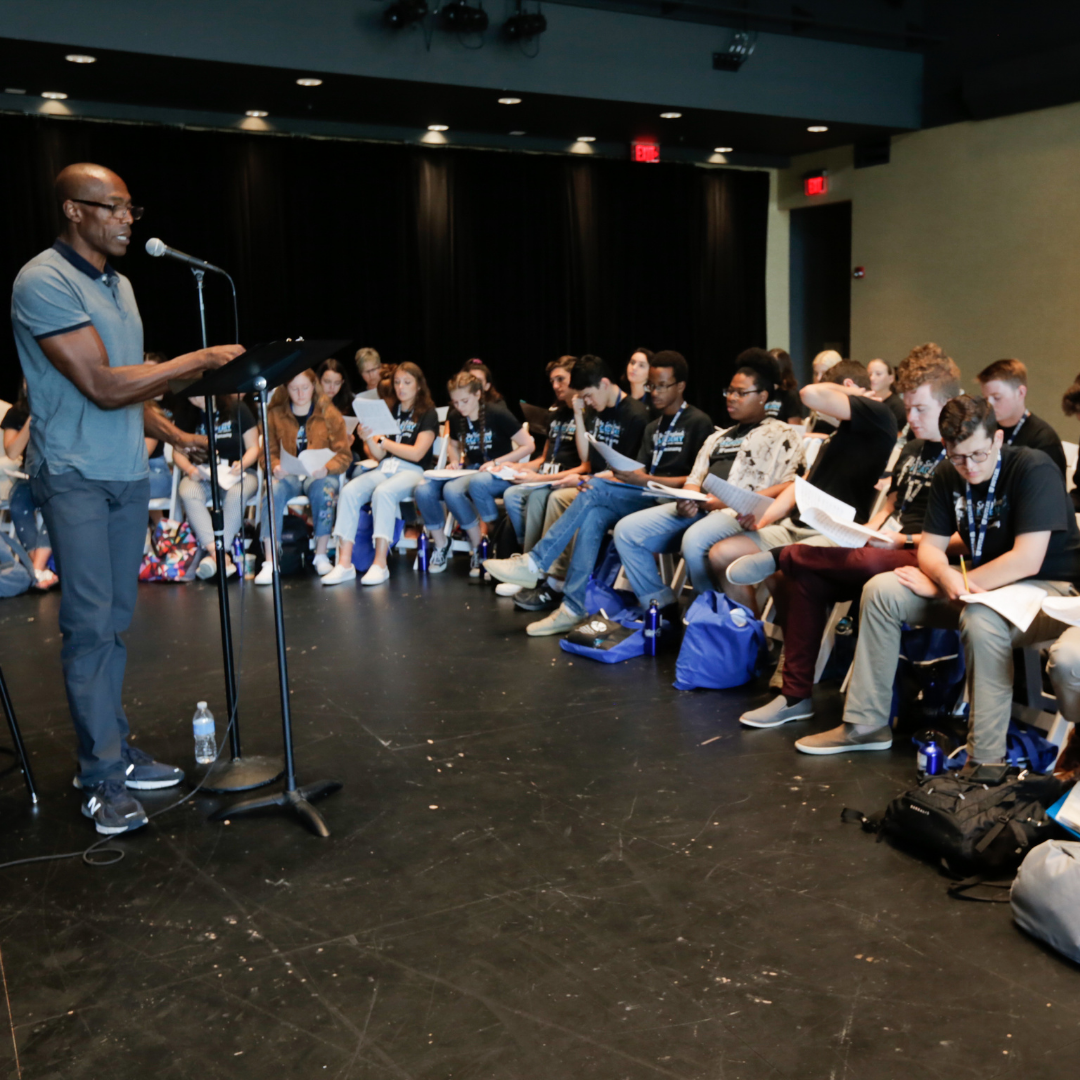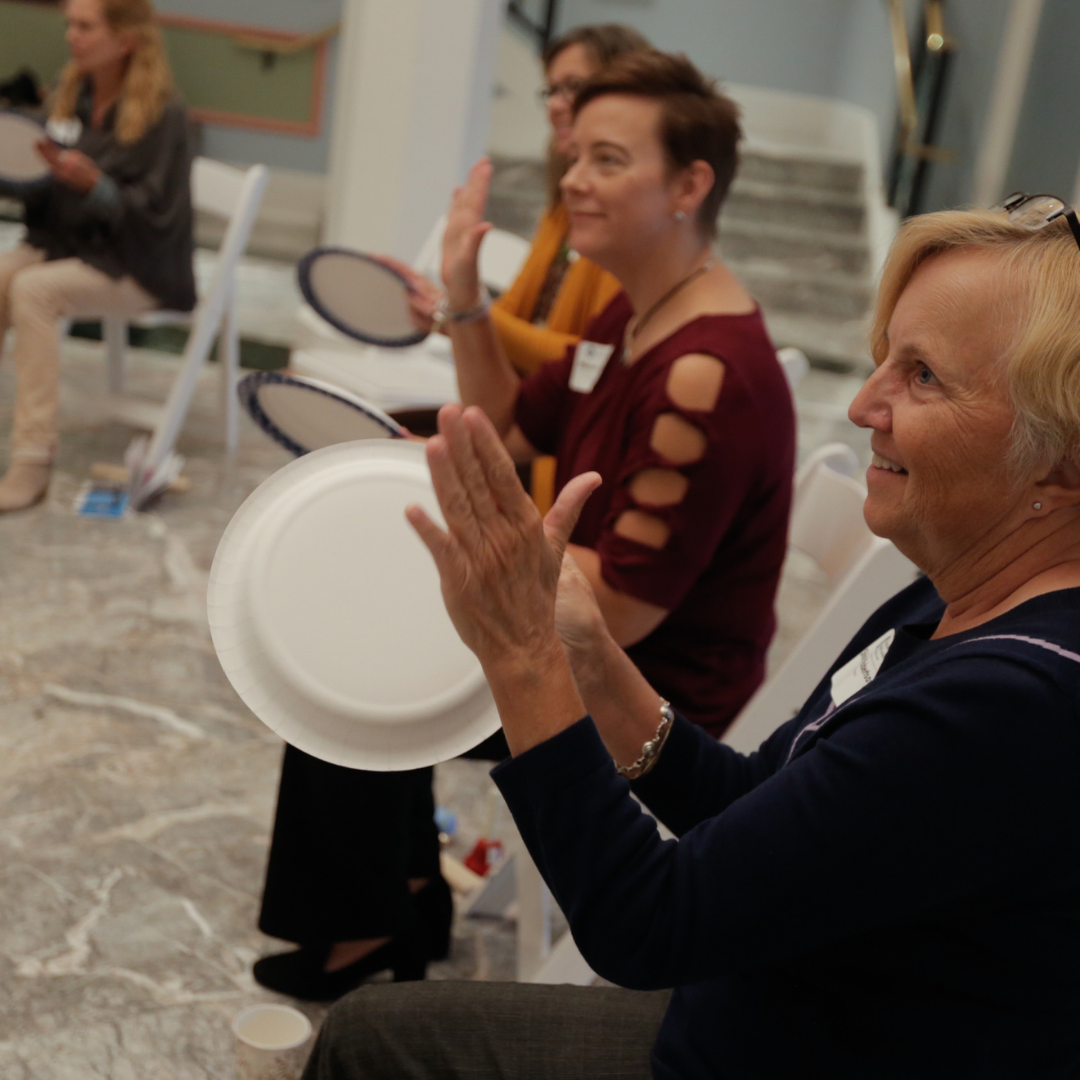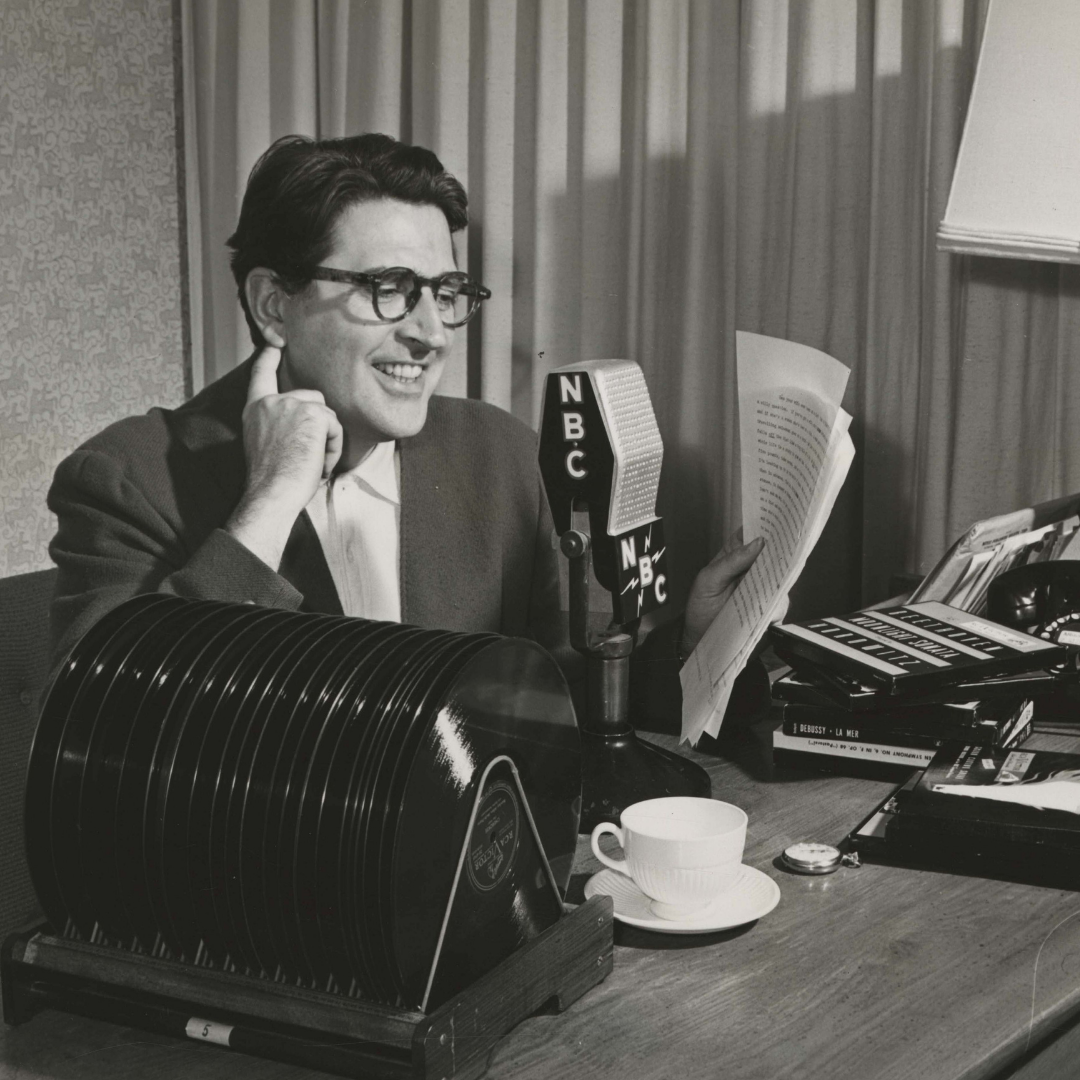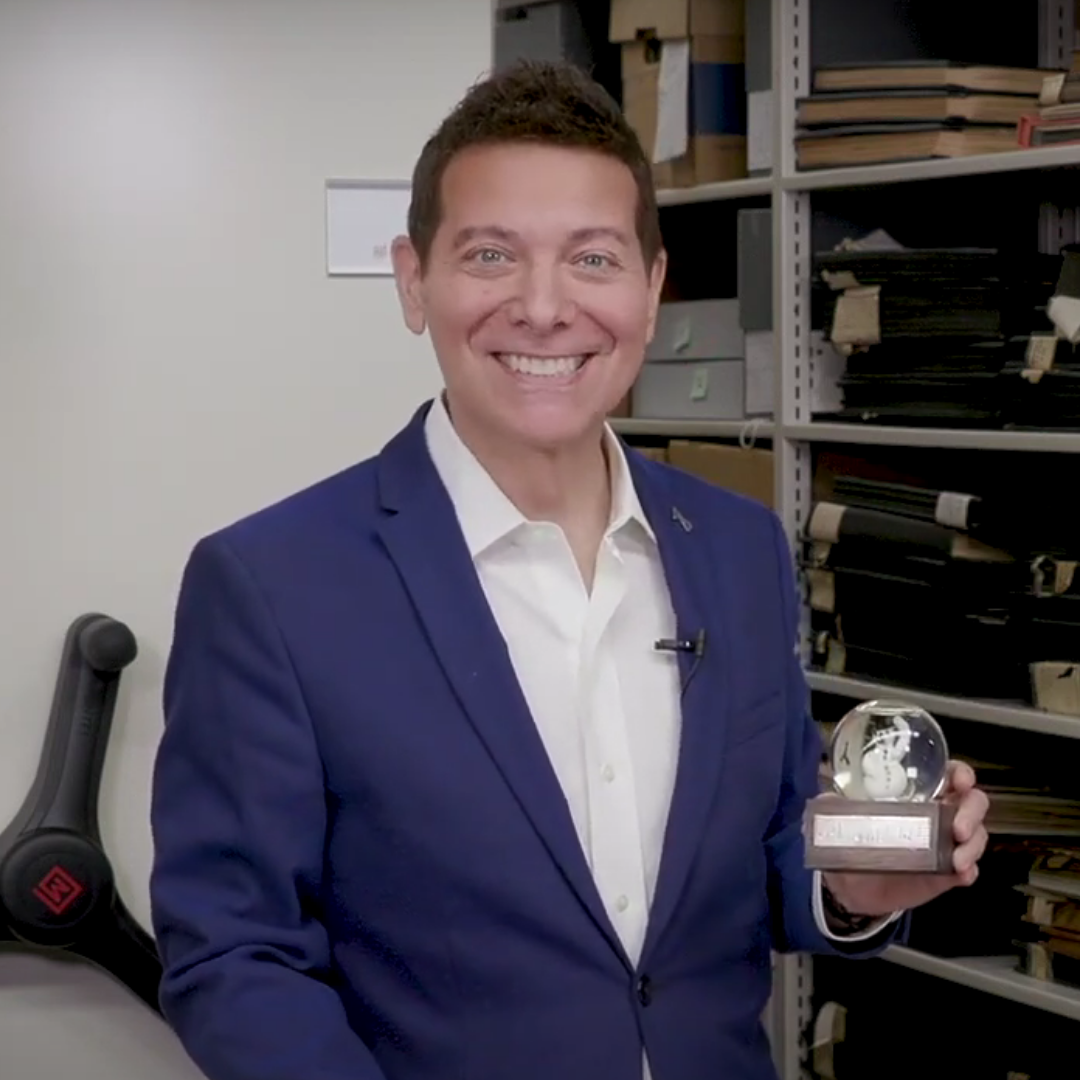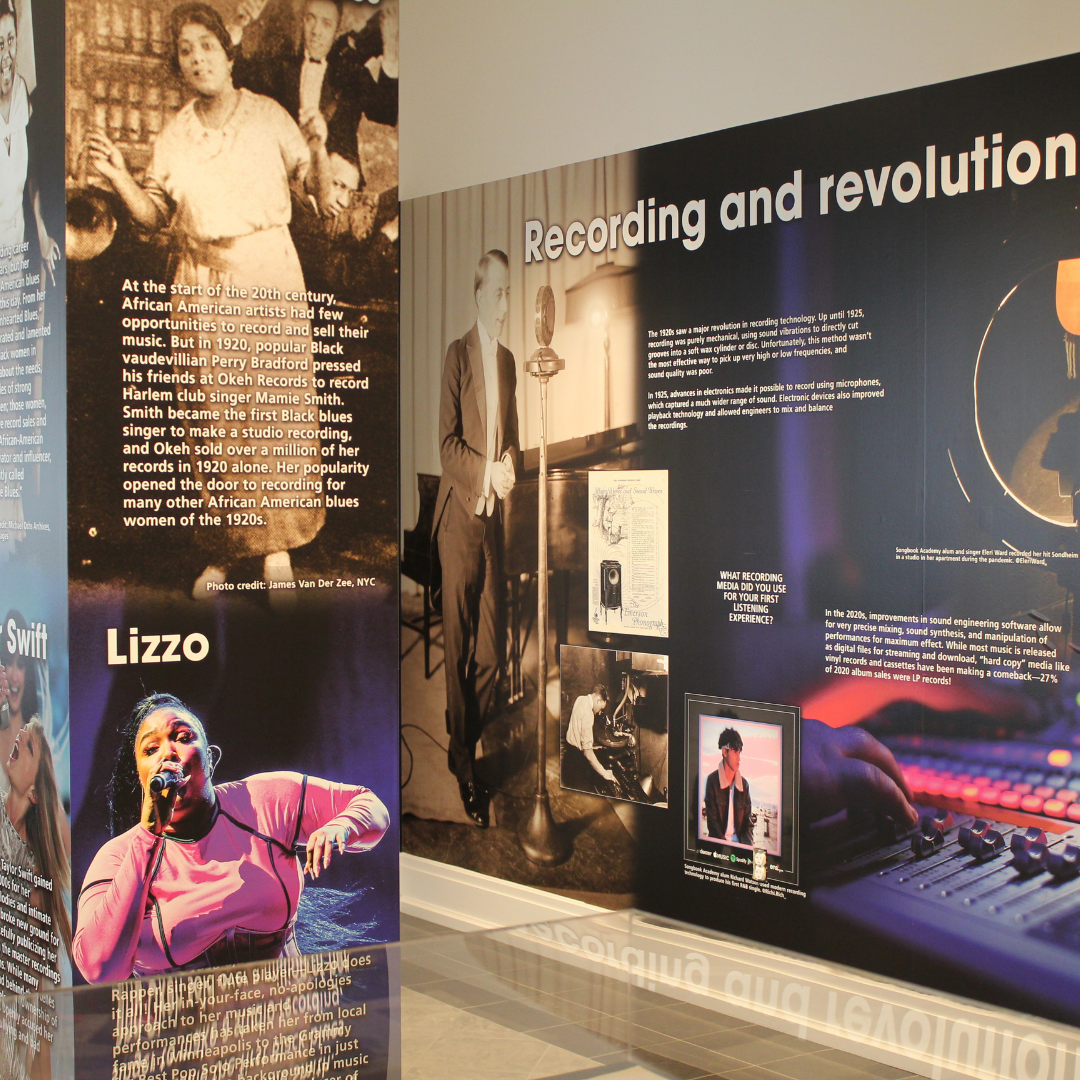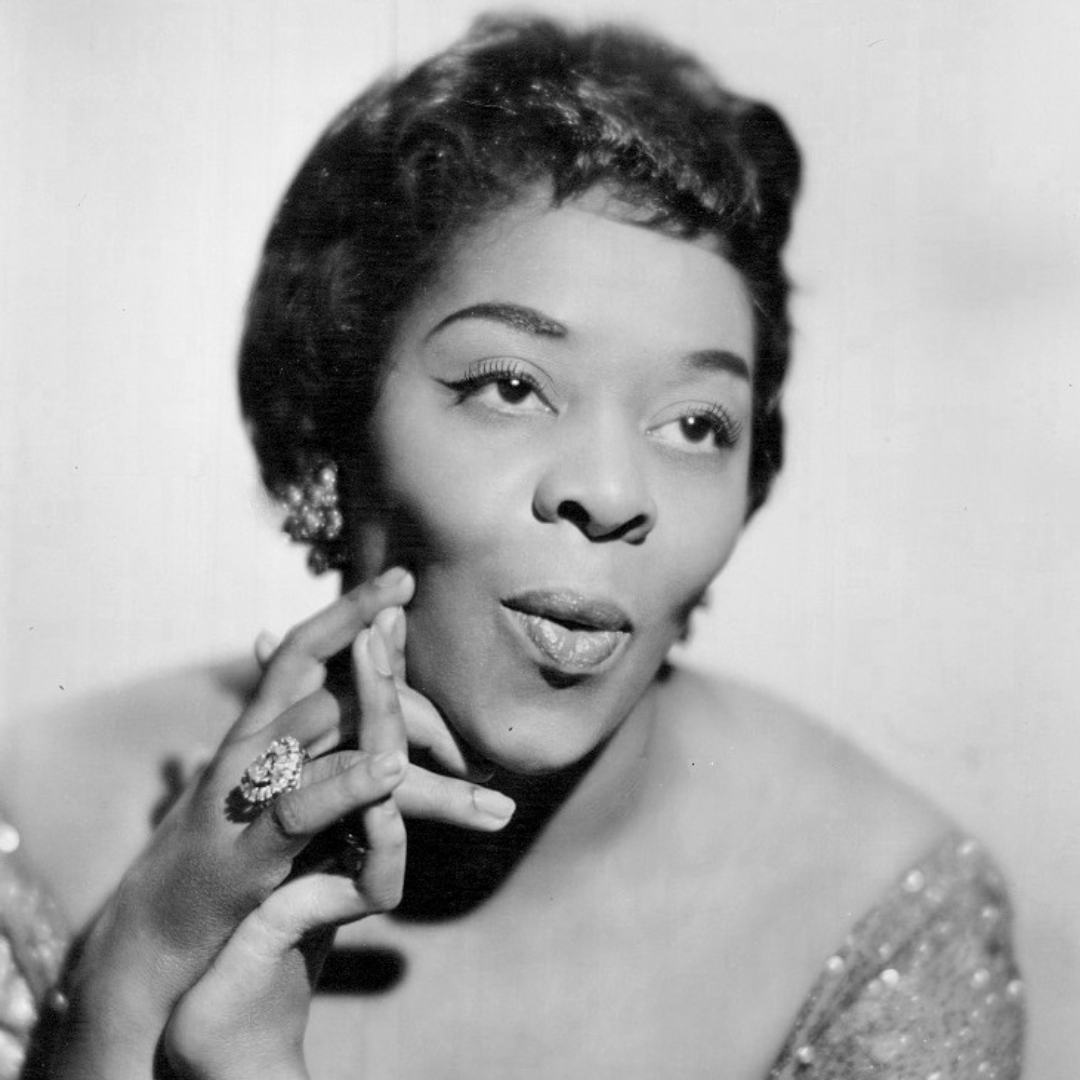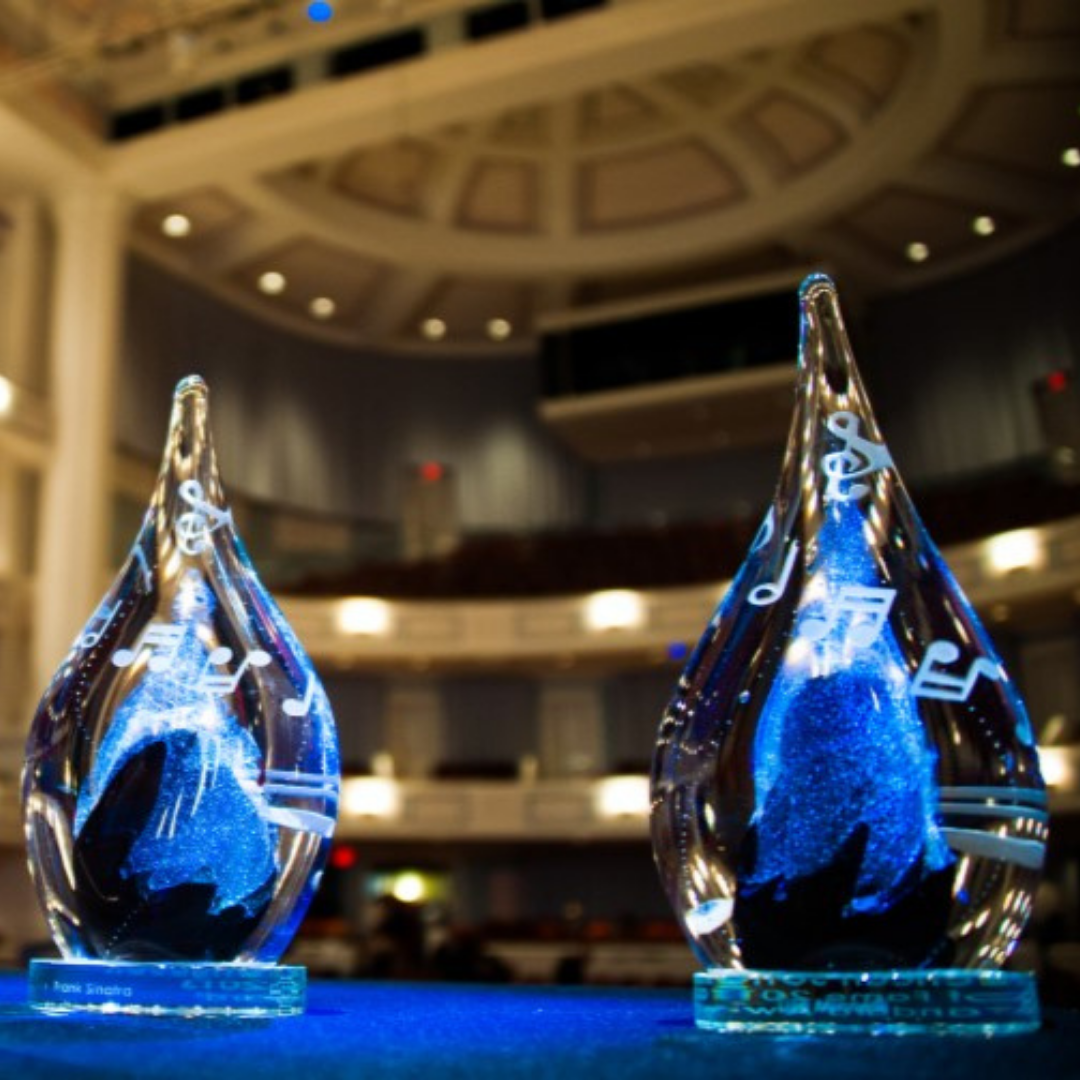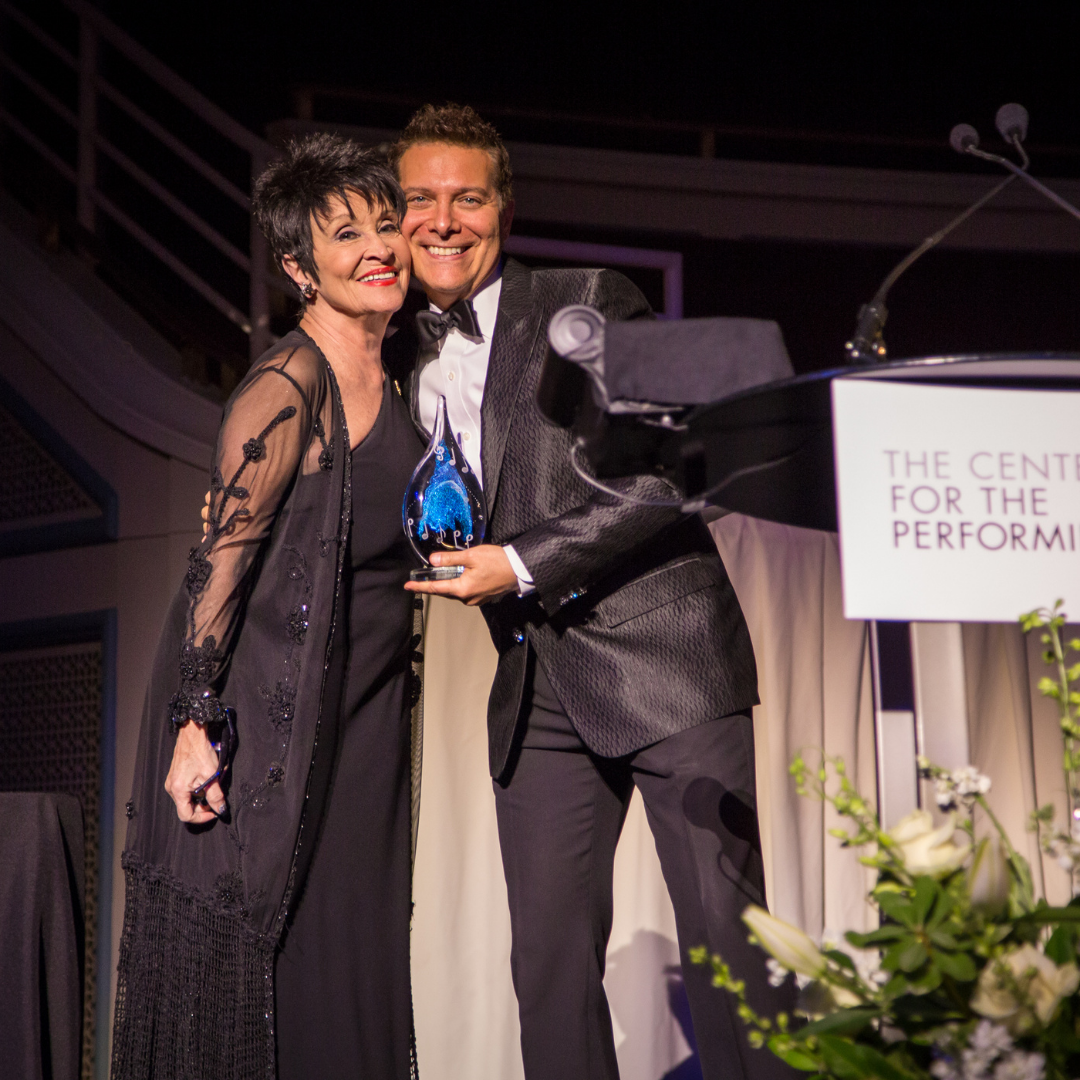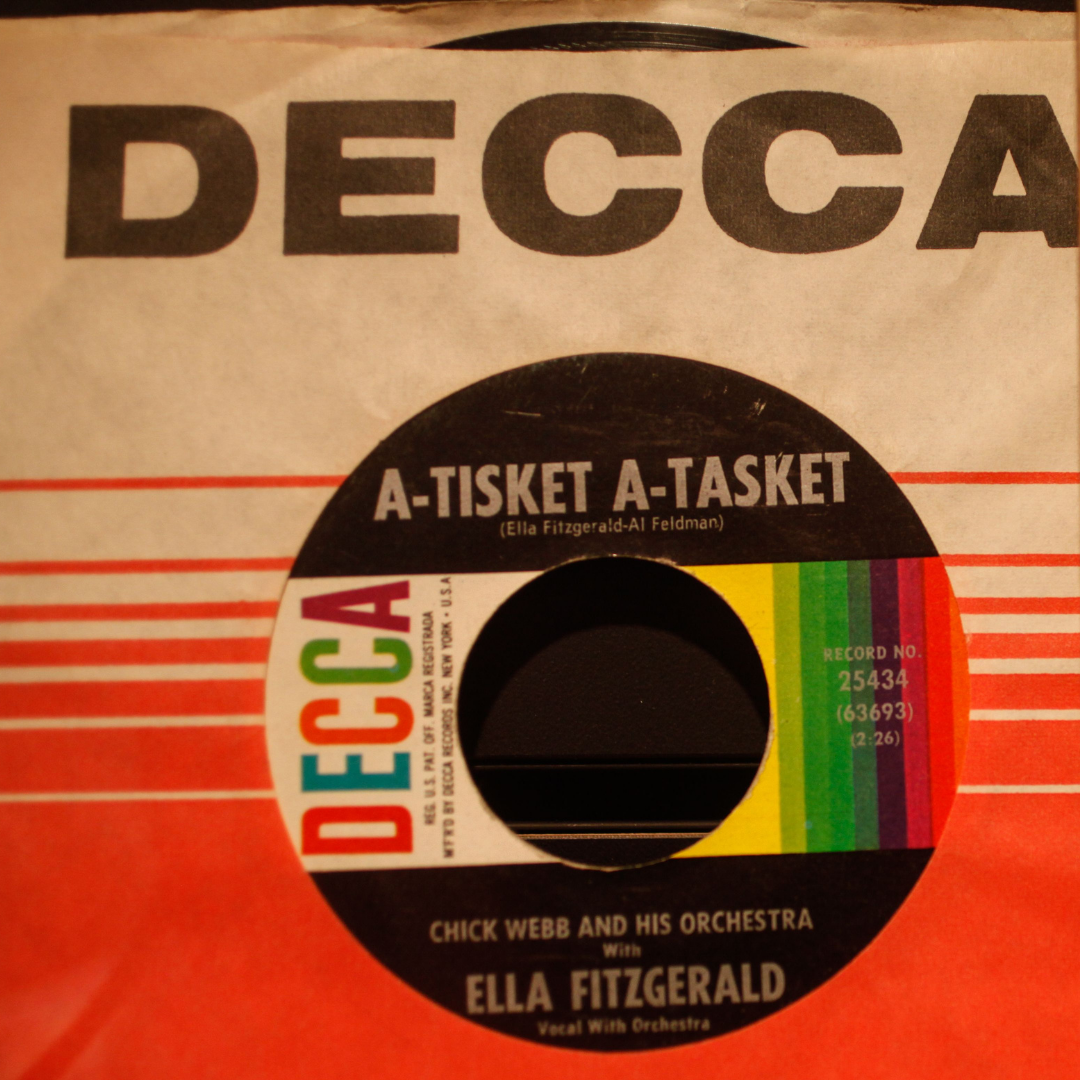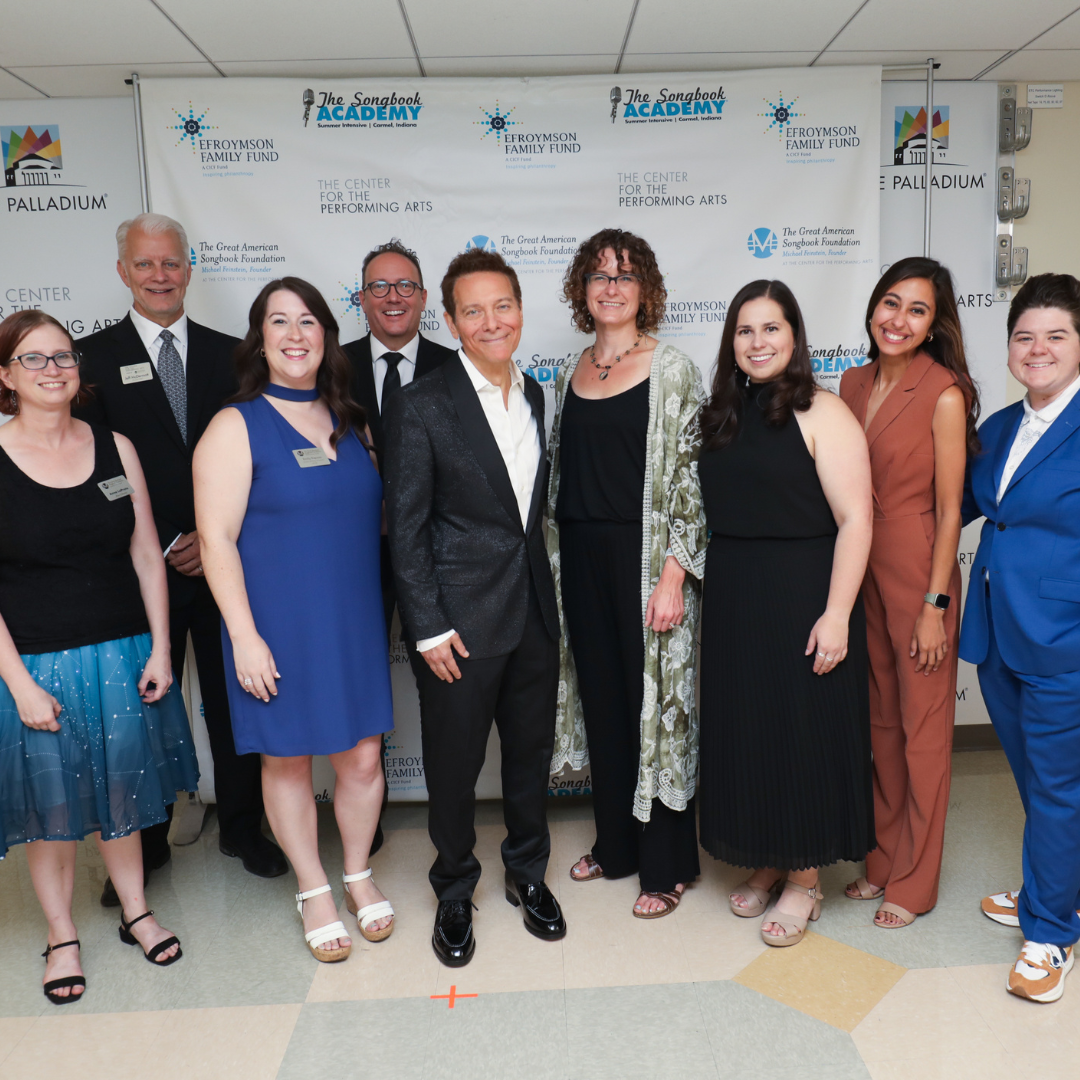Staff Spotlight: Celebrating Songbook Additions
August 15, 2024
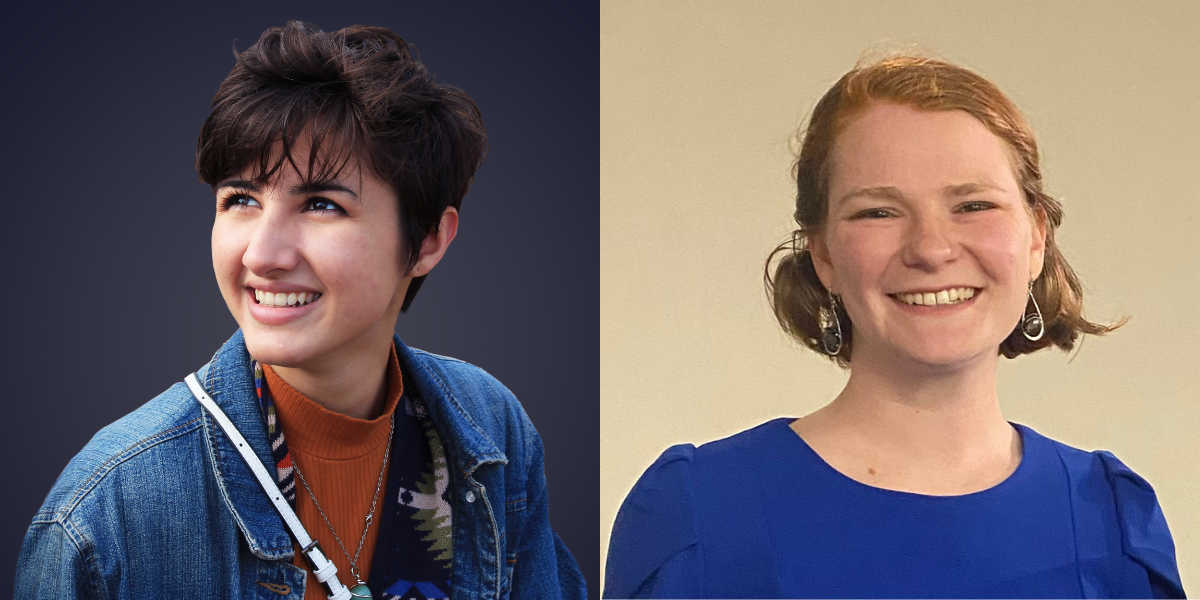
Meet Micaela Knox and Lauren Alexander!
We are thrilled to spotlight our new staff member Micaela Knox (pictured left), who joined the Songbook Foundation as Program Coordinator! Micaela most recently served as Associate Museum Director at the Model T Museum in Richmond, Indiana, where they oversaw the museum’s daily operations.
Along with Micaela, we are celebrating the accomplishments of our outgoing Summer Archives Intern, Lauren Alexander (pictured right)! Lauren is a third-year PhD student in Musicology & Ethnomusicology at the University of Kentucky. Her research interests include gender studies in music for screen media, silent film-era music, 19th-century Celtic music, and Balkan folk music. We are so grateful for Lauren’s contributions to the Library & Archives this summer!
Meet Micaela
Micaela Knox (any) joined the Great American Songbook Foundation in July as the Program Coordinator. With more than seven years of service in historical and cultural nonprofit institutions, they bring a unique perspective of museum management to the Songbook team. Micaela most recently served as the as associate museum director at the Model T Museum in Richmond, Ind., where they oversaw the auto heritage museum's daily operations, planned and coordinated programs and events, trained volunteers, and managed the museum collection. They earned a Bachelor of Arts in public relations and event management from Ball State University in 2020 and completed graduate-level coursework in museum studies and event tourism from Indiana University Indianapolis. Micaela's greatest passion is foster life-long learning and bring people together to have new and exciting experiences immersed in history and they feel the most self-fulfilled by serving museums and historical sites with strong missions, like the Songbook's.
Learn more about Micaela and their excitement to join the Songbook Foundation team:
Q: Why are you excited to join the Songbook Foundation team?
The Songbook has an excellent core identity and a strong foundation of support. I was excited to feel the sheer amount of passion and dedication from the Songbook's staff and volunteers and knew that this was an organization that understood its position in preserving American history.
Q: What is your favorite artist, group or genre of music to listen to right now?
I wish I could give a satisfying answer - I just love anything with a good rhythm I can wiggle to.
Q: When did you first fall in love with the American Songbook? Were you already aware of the term?
I've always respected jazz and the forms of music which evolved from it/ I previously worked in Richmond, Ind., which is where Gennett Records was founded and today has a rich heritage dedicated to early music recording; however, I was not aware of the term "Great American Songbook."
Q: What do you like to do in your free time? Anything else you'd like to add?
I just moved to Indianapolis - right near downtown! I'm looking for recommendations for things to do and beautiful hole-in-the-wall small businesses. I love experiencing unique, wacky, and weird places.
Meet Lauren
Lauren Alexander (she/her), from Carmel, Indiana, is a third-year student in the blended Master’s to PhD program in Musicology & Ethnomusicology at the University of Kentucky College of Fine Arts. Before moving to Lexington, she received a Bachelor of Music in Voice Performance from DePauw University, studying under Dr. André Campelo. One of her current research areas is music for screen media, specifically film music. Lauren pursued an internship with the Great American Songbook Foundation (GASF) in order to gain more archival experience and explore potential areas in our collection for her dissertation.
Learn more about her experience this summer in the Songbook Library & Archives in the following Q&A:
Q: What was a day in the life like as an intern in the Library & Archives?
I was fortunate to engage with various stages of archival projects this summer. My first project consisted of taking an initial inventory of the Florence Henderson collection. I unboxed all six boxes and took note of the arrangements’ titles before labeling folders with the information for future use. The next inventory list included greater details, such as the arranger’s name, date of performance, and key area. After completing this step, I reorganized Henderson’s arrangements in alphabetical order, and I relocated the parts and scores into archival folders and boxes. I concluded the project in writing the finding aid for the collection. As a musicologist, the finding aid was my favorite part to contribute because it helps future researchers locate and access the information. I also loved diving into the biographies of Florence Henderson and her arrangers. I also took an initial inventory of the Lennon Sisters’ collection Each day wouldn’t be complete without reading from the books from GASF’s music library. I borrowed several books on American silent film music in preparation for my dissertation.
Q: What was your favorite collection that you discovered in the process and why?
I couldn’t pick one favorite collection from this summer but the two collections from which I learned the most were Meredith Willson, and Steve Lawrence and Eydie Gormé. The Willson collection taught me about the importance of digitizing archivists. By increasing the accessibility of materials, scholars can access Willson’s documents for various projects all over the world.
While reading through documents or arrangements took up much of my time, I also want to acknowledge the literal heavy lifting that goes into archiving. This summer I worked on organizing over forty boxes of the Steve Lawrence and Eydie Gormé collection. Before an archival team member opens the boxes for an initial inventory, it can be helpful to sort them in order of delivery/ shipment. It is rare that each box is labeled with the materials inside, but the order may still tell us the context in which it existed in its prior location. These ‘behind the scenes’ details were informative to me as a current music researcher, but I feel that musicians can also benefit from understanding the work that goes into providing a musical excerpt for a performer.
Q: When did you first fall in love with the American Songbook? Were you already aware of the term?
I grew up with movie musicals from the Songbook frequently playing in the house. As the youngest of three siblings, I loved learning about the music preferences of my other family members. I was particularly drawn to Marni Nixon when I first started singing and quickly became enamored with playback singing in movies. My love for the American Songbook continued into my collegiate studies in voice performance at DePauw University. During my coursework I decided I loved singing the works, but I enjoyed sharing the stories and fun facts about the music even more. I decided to pursue a degree in musicology/ ethnomusicology because I wanted to unpack more about American popular music- especially the careers of women like Nina Simone and Wendy Carlos in the music history canon.
Q: Where are you headed after your internship? What projects are you working on and excited about?
This fall I am continuing my third and final year of coursework for my PhD in musicology/ ethnomusicology at the University of Kentucky. I look forward to teaching a course in oral communication for musicians and a music history course on the Classical and Romantic eras. I am also working towards my dissertation on women composers in the silent film era.
Throughout my graduate school coursework, I have taught several music courses; however, I have not engaged with archival research to the same extent. This summer deepened my knowledge of cataloguing and library processes. I’m grateful this internship broadened my portfolio for my future career, whether that be in library sciences or academia.



